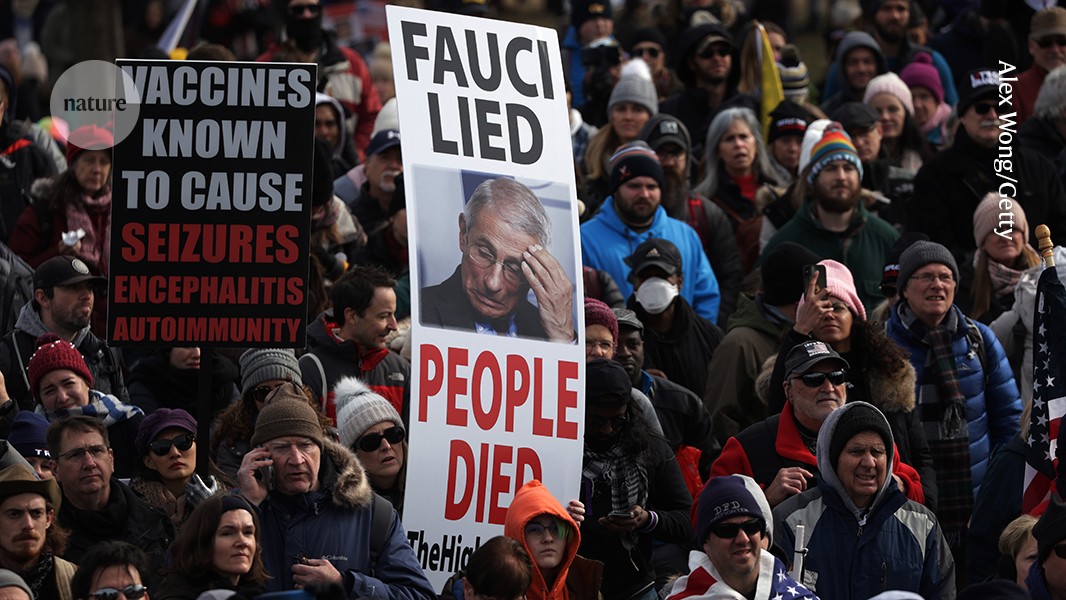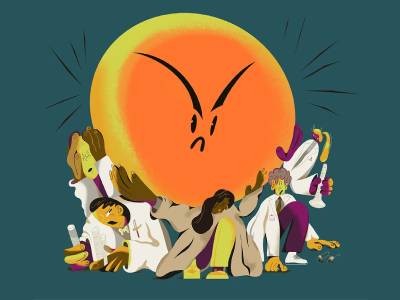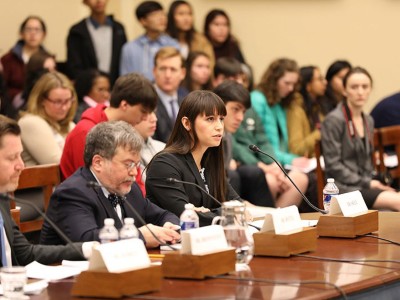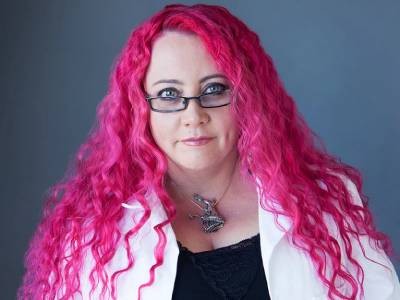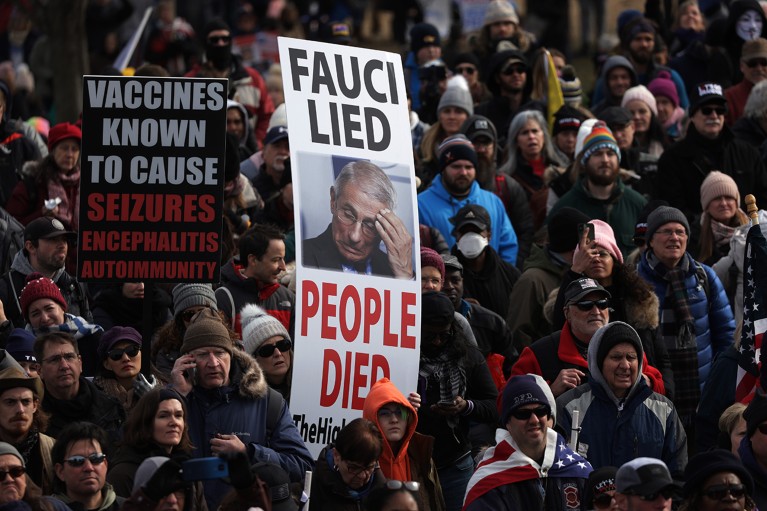
Anthony Fauci, head of the US National Institute of Allergy and Infectious Diseases, was assigned personal security guards after receiving death threats during the COVID-19 pandemic.Credit: Alex Wong/Getty
Intimidation and harassment have become an occupational hazard for scholars studying phenomena linked to politics, including climate change, disinformation and virology. Now, researchers have united to create a defence playbook that offers tactics for dealing with this reality. Their message is clear: scientists can take steps to protect themselves, but their institutions also need to have a support plan in place.
Harassment of scientists is surging — institutions aren’t sure how to help
“It’s universities and the academic institutions that have the primary responsibility to act,” says Rebekah Tromble, who leads the Institute for Data, Democracy and Politics at George Washington University in Washington DC, and has herself experienced harassment because of her professional work. “They are the employers, and frankly it’s the type of public-interest scholarship that they are incentivizing that puts scholars at risk.”
Tromble worked with Kathleen Searles, a political scientist at the University of South Carolina in Columbia, to develop an initiative called the Researcher Support Consortium, launched today in Washington DC. With the support of multiple non-profit organizations, they developed a series of recommendations for researchers, funding agencies and academic institutions, including template policies for universities that lay out best practices for responding to attacks on their scholars.
The consortium isn’t the first to tackle the issue, but it has provided the most comprehensive guide available, says Isaac Kamola, a political scientist at Trinity College in Hartford, Connecticut. “It is the new industry standard,” says Kamola, who also serves as director of the American Association of University Professors’ Center for the Defense of Academic Freedom, which operates its own hotline for researchers targeted by harassment campaigns.
Protection plan
Climate scientists have been grappling with harassment and threats over their work for more than a decade. In recent years, however, attacks have spread more widely, to biomedical researchers and social scientists. For instance, in 2021 Nature surveyed 300 scientists who had given media interviews about the COVID-19 pandemic and found that two-thirds of respondents had negative experiences because of their public interactions; 22% had received threats of physical or sexual violence. And within the past two years, researchers who study the spread of election and vaccine misinformation on social media have been at the centre of US congressional investigations and lawsuits.
‘I hope you die’: how the COVID pandemic unleashed attacks on scientists
The consortium’s advice for researchers who think they are at risk starts with simple steps such as removing personal contact information and office locations from publicly available websites. But the organization also points to more sophisticated strategies, such as applying for a ‘Certificate of Confidentiality’ from the US National Institutes of Health, which protects the privacy of participants in research studies. Funding agencies and grant managers, meanwhile, are urged to issue messages of support to both grant recipients and their research institutions.
But the bulk of the consortium’s recommendations are focused on academic institutions. Its 43-page toolkit outlines steps universities can take to prepare for attacks on their scholars rather than scrambling to react to harassment after it has happened. The first steps are to have policies in place, to establish codes of conduct for students and professors, and to create reporting systems. Institutions should also establish committees of administrators, department heads, communications staff members, legal advisers and others who are ready to act.
Experts contacted by Nature say these are useful guidelines and will help if they are followed. “Unfortunately, I don’t think it will stop researchers from needing their own lawyers when things get dire,” says Lauren Kurtz, executive director of the Climate Science Legal Defense Fund, a non-profit organization in New York City that was created in 2011 to provide free legal aid to climate scientists. The fundamental problem, Kurtz says, is that institutions are often more focused on protecting themselves than their faculty members and frequently decline to provide legal counsel to their employees.
Microbiologist who was harassed during COVID pandemic sues university
The Association of American Universities in Washington DC, which includes more than 65 US public and private institutions, did not respond to Nature’s request for comment.
Tromble says the consortium is designed to operate in tandem with organizations that provide legal support to scientists. The latest to launch such a service is the Knight First Amendment Institute at Columbia University in New York City, which announced in November last year that it would provide legal support for researchers who study social media.
The stakes are high — for researchers, for science and for the country, Kamola says. “Defending faculty from harassment is essential for protecting the long-term integrity of research, the integrity of the institutions in which we work, and the integrity of our democracy.”


